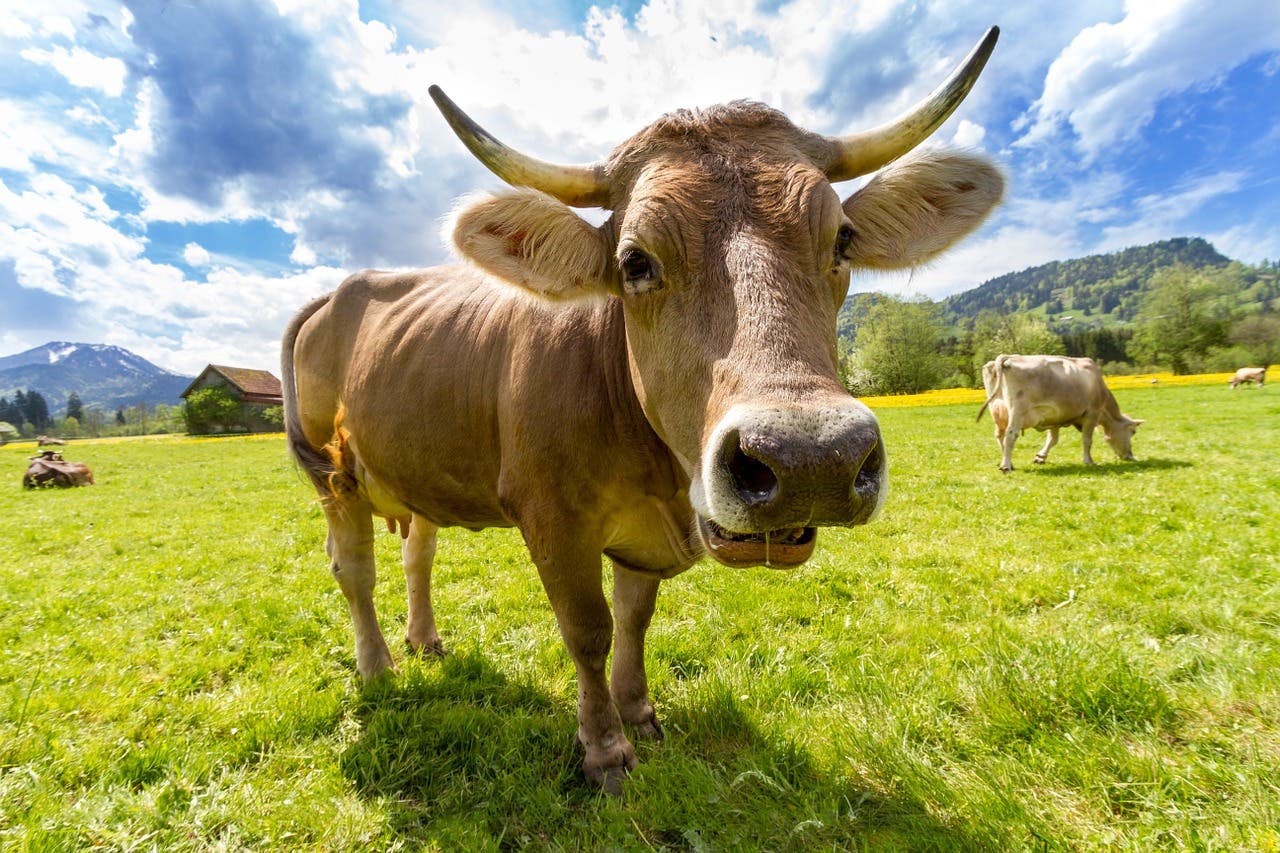Recycled cow manure fertilizing a green agricultural trend
Cow manure – a longtime agricultural waste headache for dairy farmers – soon may ignite a new sustainable fertilizing trend.

[Sept 4, 2021: Cornell University]
Cow manure – a longtime agricultural waste headache for dairy farmers – soon may ignite a new sustainable fertilizing trend.
Judiciously decomposing organic matter from 700 degrees Fahrenheit to 1,200 degrees F, without oxygen – a process known as pyrolysis, very different from incineration – and retaining nutrients from dairy lagoons can transform manure into a manageable, ecologically friendly biochar fertilizer, according to new research published in Scientific Reports.
That would allow dairy producers to stop storing excreta in on-farm lagoons or spreading it only in nearby fields.
“Manure is usually a liquid problem and it has increasingly been an issue of disposal,” said Johannes Lehmann, professor in the College of Agriculture and Life Sciences at Cornell University. “Using pyrolysis of solid manure and retention of nutrients from the liquid onto the biochar, we can create a fertilizer from waste. That’s a marketable commodity.”
Related Stories
Commercial fertilizer made of nitrogen, phosphorus and potassium is created using carbon inputs like natural gas, sulfur, coal and rock deposits. If agriculture can recycle nitrogen, Lehmann said, farming can reduce the carbon input that comes from fossil fuel.
“Once we make a dry fertilizer out of what was once a liquid problem, it is no longer an issue of disposal,” said Lehmann, a Cornell Atkinson Center for Sustainability faculty fellow. “It’s safe because the solids are pyrolyzed. There are no pathogens, no hormones or antibiotics residues or any other material that could contaminate soil or water.”
Nitrogen management is a major challenge throughout the farming world. In New York state, for example, dairy manure waste production averages 12.8 million metric tons annually, which can easily fertilize the state’s 43,000 acres of corn. If a farmer grows 200 acres of corn, that producer spends about $28,000 annually for commercial fertilizer, while a dairy farmer with 550 cows spends about $25,000 annually on manure storage, according to the paper.
"Coupling the local excess of manure nutrients with regional fertilizer needs could help farmers save money and alleviate environmental issues," said doctoral student Leilah Krounbi, the paper’s lead author.
“You’re reducing the volume of the solid waste product that has 90% water and reducing it to zero water,” Lehmann said. “If we retain nutrients from the liquid as we have shown in this study, you’re going from these huge lagoons that are noticeably emitting odor and climate gases such as methane and reducing that footprint by an order of magnitude. That’s a huge saving all around.”
For more environment news stories check out our Green Impact section at The Brighter Side of News.
Like these kind of feel good stories? Get the Brighter Side of News' newsletter.
Tags: #Green_Good_News, #Agriculture, #Cows, #Fertilizer, #Recycling, #The_Brighter_Side_of_News
Joshua Shavit
Science & Technology Writer | AI and Robotics Reporter
Joshua Shavit is a Los Angeles-based science and technology writer with a passion for exploring the breakthroughs shaping the future. As a contributor to The Brighter Side of News, he focuses on positive and transformative advancements in AI, technology, physics, engineering, robotics and space science. Joshua is currently working towards a Bachelor of Science in Business Administration at the University of California, Berkeley. He combines his academic background with a talent for storytelling, making complex scientific discoveries engaging and accessible. His work highlights the innovators behind the ideas, bringing readers closer to the people driving progress.



